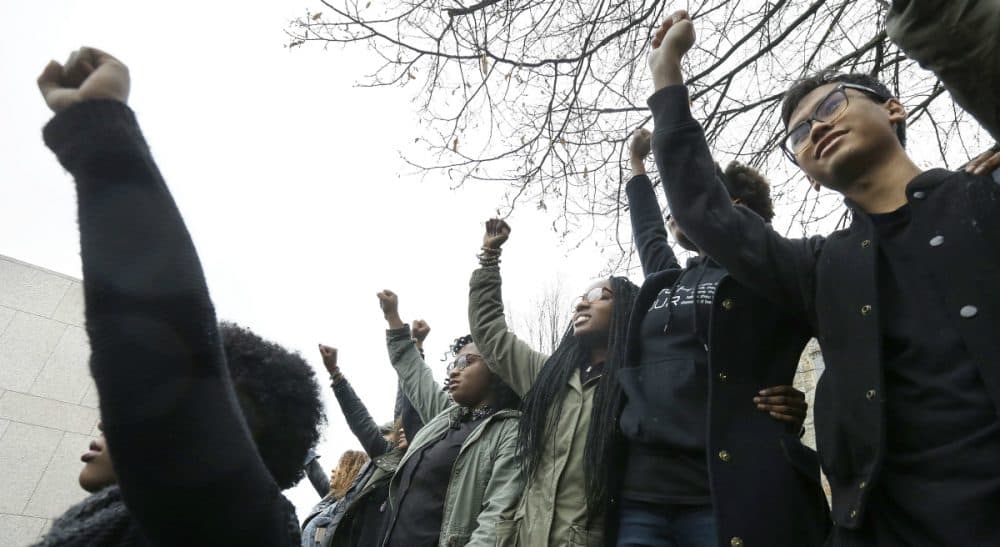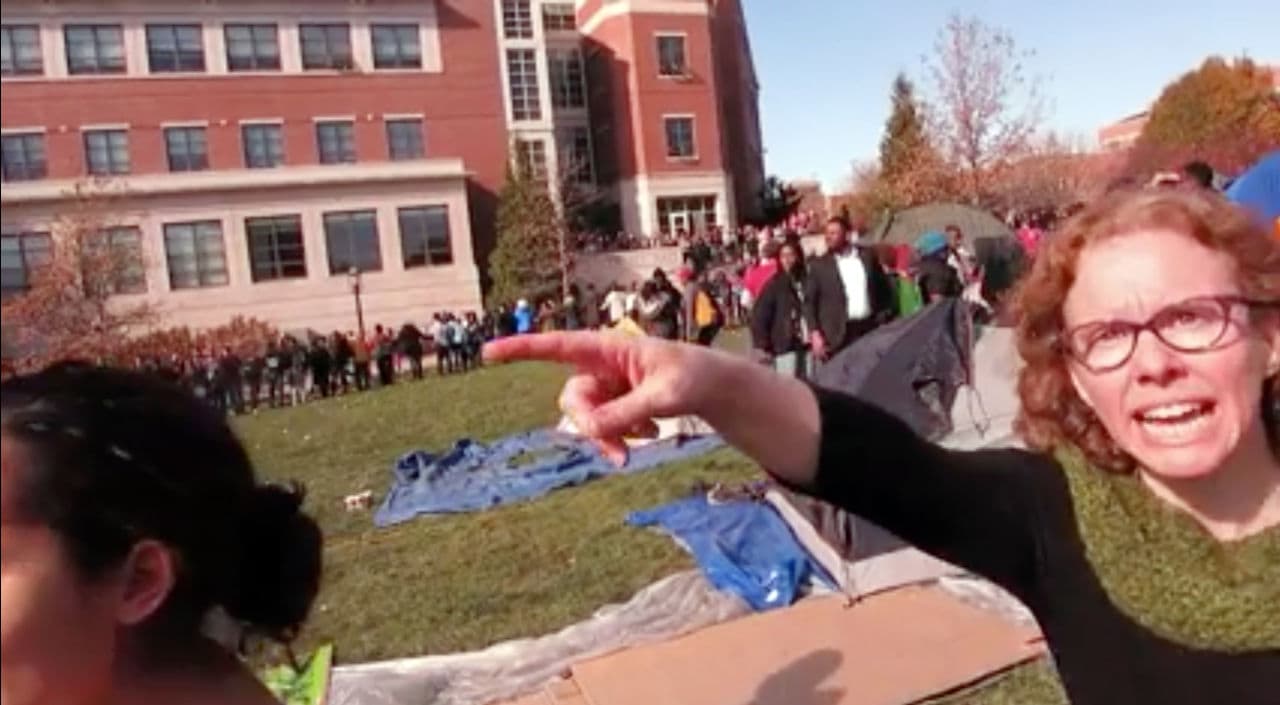Advertisement
The Rise Of Authoritarian Campus Protesters

If you’ve misspent the past 25 years following burgeoning campus censorship crusades, you’re probably not surprised by the latest student protests of unwelcome speech at Yale and other campuses. You might even be resigned to fearful demands for trigger warnings and “safe spaces,” on campus in which no “offensive” speech is allowed.
Arguments over the value of free expression versus the alleged dangers of micro-aggressions are familiar, as are analyses of the historic reasons for student hostility toward free expression. I recently reviewed them in congressional testimony and I’m not going to repeat them here. Instead I want to underscore the increasingly vehement authoritarianism of student protests.
Free speech advocates can be forgiven for comparing these budding cultural revolutionaries to Maoists.
What’s shocking, if not entirely surprising, is the conviction of some students that free expression isn’t just an occasional obstacle to equality but an absolute evil to be purged from campus and, I suppose, the larger society. The “I’m not in favor of censorship, but” mantra that reigned a decade ago has been replaced with “I’m strongly in favor of censorship, and …”
And what? And discipline campus dissidents who stand up for free speech, a group of protesters at Amherst College demand. In addition to submitting to punishment, civil libertarian students should be required to attend “extensive training for racial and cultural competency.” Free speech advocates can be forgiven for comparing these budding cultural revolutionaries to Maoists.
You might also wonder at the alacrity with which grownups, nominally in charge on campus, are surrendering to student demands for the firing of administrators who give even the slightest offense, however inadvertently. At Claremont College, Dean of Students Mary Spellman resigned after being attacked for her language in reaching out sympathetically to a student who wrote critically about her experiences as a minority on campus:
“Thank you for writing and sharing this article with me,” the dean wrote in an email to the student. “We have a lot to do as a college and a community. Would you be willing to talk to me about these issues? They are important to me and the DOS staff.” So far so good, I think. But the former Dean Spellman made the mistake of concluding. “(W)e are working on how we can better serve students, especially those that don’t fit our CMC mold.”

These three unintentionally offensive words, “Our CMC mold,” cost Mary Spellman her job.
But if Claremont protesters are guilty of engaging in a bit of vigilante injustice, they’re not primarily to blame for Spellman’s resignation. They’re hardly the first and won’t be the last outraged college students to lack perspective, as aging veterans of past protests should acknowledge. What’s most appalling is the failure of many college presidents to stand up for free speech in the face of these protests. What’s most appalling is their inclination to pander to student protesters, in shows of faux respect, instead of arguing with them.
Some faculty members are also to blame for encouraging and participating in student censorship crusades. The now-notorious assistant professor of communications Melissa Click joined efforts to prevent student journalists from covering protests at the University of Missouri. Click was roundly criticized, apologized for her actions and resigned a “courtesy appointment” in the School of Journalism.
She’s been sufficiently berated, but Click’s behavior is still worth noting as a reminder that hostility to free speech and a free press and demands for protection from disagreeable views extends across several generations. Alliances between students and faculty censors were predictable: Campus speech codes date back decades, which means that faculty members approaching middle aged were also educated about the need to restrict speech considered offensive by presumptively vulnerable groups.
It will take courage for students who value civil liberty to stand up for it at the risk of being demonized as racist, sexist, homophobes who refuse to check their privilege.
Will a rising generation of students confronted with increasingly repressive and unreasoned demands to purge dissent and dissenters start a counter-revolution? It will take courage for students who value civil liberty to stand up for it at the risk of being demonized as racist, sexist, homophobes who refuse to check their privilege. Still, this recent editorial at the Claremont Independent provides a little reason to hope:
“We Dissent,” the editorial is entitled. It expresses regret that Dean Spellman’s “good intentions” were “overlooked because of poor phrasing.” But it also expresses disappointment in her for allow(ing) “angry students to bully you into resignation.” And it chastises the college president for his craven passivity:
“We were disappointed to see you idly stand by and watch students berate, curse at, and attack Dean Spellman for being a ‘racist.’ You let your colleague, someone who has been helping your administration for the past three years and the college for six years, be publicly mocked and humiliated. Why? Because you were afraid. You were afraid that students would also mock and humiliate you if you defended Dean Spellman, so you let her be thrown under the bus.”
Finally, the student editorialists conclude, they are also disappointed in themselves for “scared into silence,“ but vow to be silent no longer. “We are no longer afraid to be voices of dissent,” they conclude.
And all I can add is — “bravo.”
